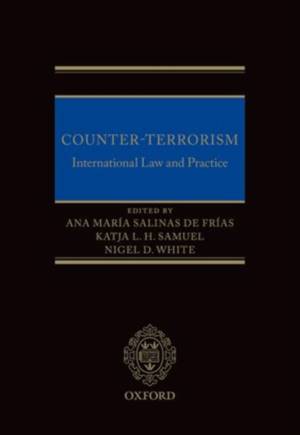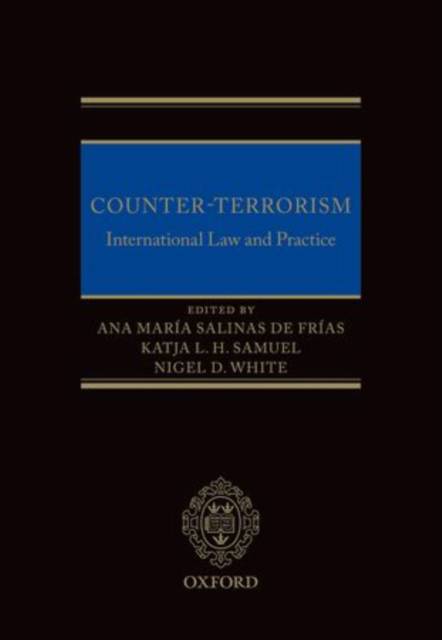
- Retrait gratuit dans votre magasin Club
- 7.000.000 titres dans notre catalogue
- Payer en toute sécurité
- Toujours un magasin près de chez vous
- Retrait gratuit dans votre magasin Club
- 7.000.0000 titres dans notre catalogue
- Payer en toute sécurité
- Toujours un magasin près de chez vous
Counter-Terrorism
International Law and Practice
Ana Maria Salinas de Frias, Katja Samuel, Nigel White
Livre relié | Anglais
317,45 €
+ 634 points
Description
The response of governments to terrorism is one of the most controversial issues of the twenty-first century. Balancing the desire to achieve security with the safeguarding of human rights has proved to be highly contentious. This book analyzes the international rule of law framework in which counter-terrorism responses occur, namely those of international human rights, humanitarian, criminal, and refugee law. It focuses on some of the most pressing, emerging and/or under-researched issues and tensions, including: the policy choices associated with meeting security imperatives; the tensions between the criminal justice approach to counter-terrorism and the military approach; the identification of lacunae within existing legal frameworks; and tensions between executive, judicial, and legislative responses. It addresses a wide range of issues, such as: an analysis of key legal principles; emergency and executive measures; radicalization; governmental impunity; classification, administration and treatment of battlefield detainees; extrajudicial and targeted killings; forms of, and treatment in, detention; non-refoulement; diplomatic assurances; interrogation versus torture; extraordinary rendition; discrimination; reparations for victims of terrorist attacks and security responses; (mis)use of military and immigration tribunals; judicial and institutional developed and emerging rule of law norms on terrorism; non-judicial oversight by means of democratic accountability; significance of rule of law principles to non-legal counter-terrorist policy; and the identification and analysis of best practices. Drawing together an impressive spectrum of legal and non-legal, national and institutional, practitioner, policy and academic expertise, this book is an unmissable reference work on all aspects of counter-terrorism policy.
Spécifications
Parties prenantes
- Auteur(s) :
- Editeur:
Contenu
- Nombre de pages :
- 1120
- Langue:
- Anglais
Caractéristiques
- EAN:
- 9780199608928
- Date de parution :
- 21-03-12
- Format:
- Livre relié
- Format numérique:
- Genaaid
- Dimensions :
- 249 mm x 178 mm
- Poids :
- 1703 g

Les avis
Nous publions uniquement les avis qui respectent les conditions requises. Consultez nos conditions pour les avis.






